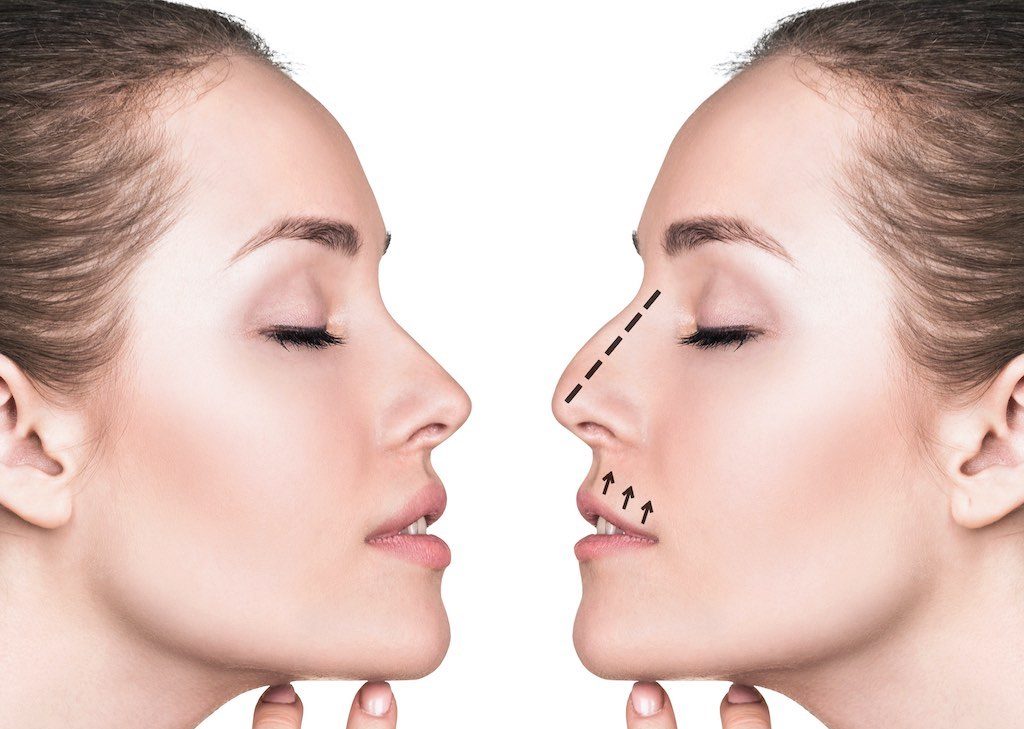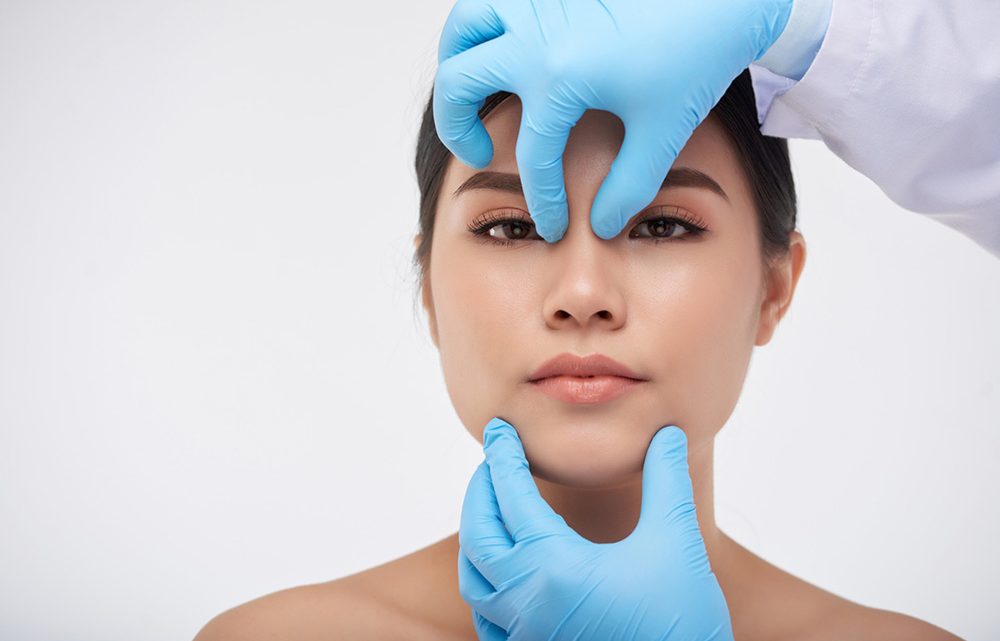Are you thinking of undergoing rhinoplasty but worried about the recovery process? Or have you recently had a nose job and want to ensure that your healing is smooth and quick? Look no further. In this blog post, we will provide expert tips on how to maximize your rhinoplasty recovery for a fast and effective healing process. From pre-operative preparations to post-op care, we’ve got you covered with all the essential information to help you achieve optimal results from your surgery. So, let’s dive in!
Table of Contents
Overview of Rhinoplasty Surgery
Rhinoplasty, also known as a nose job, is a plastic surgery procedure that alters the shape of your nose. It can be done to improve the look of your nose or to correct a breathing problem. The surgery involves making incisions in the skin around the nostrils, and then reshaping the bone and cartilage underneath.
Most people who have rhinoplasty surgery experience minimal discomfort and swelling after the procedure. However, it is important to follow your surgeon’s instructions for a quick and successful recovery. Here are some expert tips for maximizing your rhinoplasty recovery:
1. Get plenty of rest. It is important to give your body time to heal after surgery. For the first few days, take it easy and get plenty of rest. Avoid strenuous activity or exercise during this time.
2. Apply ice packs to reduce swelling. Applying ice packs to your face for 20 minutes at a time can help reduce swelling and bruising after surgery. Be sure to wrap the ice packs in a towel so they don’t come into direct contact with your skin.
3. Sleep with your head elevated. Sleeping with your head elevated on pillows helps reduce swelling by allowing gravity to drain fluid away from your face. Try to sleep with your head elevated for at least the first week after surgery.
4. Avoid wearing glasses or sunglasses. Wearing glasses or sunglasses puts pressure on your nose and can cause pain or discomfort after surgery.
What to Expect During Recovery
Assuming that you have no complications, recovery from rhinoplasty is usually quite straightforward. Most people feel ready to return to their normal activities within a week or so, although it may take up to a month before all the swelling has completely gone down.
During the first few days after surgery, it is normal to feel some pain and discomfort. You will be given pain medication to help with this. It is also common to have a stuffy nose and some bruising around the eyes, which will usually start to fade after a few days.
It is important to rest as much as possible during recovery and avoid any strenuous activity. You should also avoid blowing your nose and wearing glasses or sunglasses for at least a week.
Most people who have rhinoplasty are very happy with the results. However, it can take several months for the final results to become apparent as the swelling continues to go down.
Preparing for Surgery and Recovery
If you’re considering rhinoplasty, or a nose job, it’s important to know what to expect during surgery and recovery. Here are some expert tips to help ensure a quick and smooth recovery process:
1. Follow your surgeon’s pre-operative instructions carefully. This will help minimize any complications during surgery and ensure a successful outcome.
2. Stay hydrated before and after surgery. Drinking plenty of water helps the body heal and recover more quickly.
3. Get plenty of rest both before and after surgery. Your body needs time to heal, so don’t overdo it during the first few weeks of recovery.
4. Eat healthy foods and take supplements as recommended by your surgeon. A healthy diet helps the body recover more quickly from surgery.
5. Avoid smoking before and after surgery as it can slow down the healing process.
6. Take any pain medication as prescribed by your surgeon in order to control discomfort during the recovery period.
7. Follow your surgeon’s post-operative instructions carefully in order to promote healing and avoid complications.
Tips to Maximize Recovery Time
There are a few things you can do to help ensure a speedy recovery following your rhinoplasty surgery. First, be sure to follow all of your surgeon’s instructions carefully. This includes taking any prescribed medications and attending all follow-up appointments. Additionally, try to avoid any strenuous activity or exposure to harsh chemicals or pollutants for at least a week after your surgery.
To help minimize swelling and bruising, apply ice packs to your face for the first few days after surgery. Sleep with your head elevated on pillows for the first week or so as well. And lastly, be sure to stay hydrated by drinking plenty of fluids and eating healthy foods. By following these simple tips, you can help maximize your recovery time and ensure a successful outcome from your rhinoplasty procedure.
Aftercare Instructions
Assuming you have followed all of your surgeon’s pre- and post-operative instructions, the majority of your recovery should occur within the first two weeks. However, it is still important to take care of yourself during the entire recovery process to ensure optimal results. Here are a few expert tips for maximizing your rhinoplasty recovery:
1. Sleep with your head elevated: This will help reduce swelling and bruising. Try sleeping on your back with pillows propped up under your head and shoulders.
2. Apply ice: Ice helps reduce swelling and pain. Apply ice packs (wrapped in a thin towel) to your forehead and nose for 20 minutes at a time, several times per day.
3. Eat healthy: Eating nutritious foods helps promote healing. Make sure to include plenty of fruits, vegetables, and protein in your diet. Avoid salty foods, which can contribute to swelling.
4. Keep your head upright: Avoid bending over or looking down for extended periods of time. These activities can increase swelling in the face and nose area.
5. Take it easy: Avoid strenuous activity or exercise for at least two weeks following surgery. Also avoid exposure to sun or wind, which can irritate the skin around the incisions.
 Reducing Swelling and Discomfort
Reducing Swelling and Discomfort
There are several things you can do to minimize swelling and discomfort after your rhinoplasty procedure. First, be sure to follow your surgeon’s instructions on how to care for your nose after surgery. This will include keeping your head elevated and using cold compresses to reduce swelling. You should also avoid strenuous activity and exposure to sunlight for at least the first week following your surgery. If you experience any pain, be sure to take the pain medication prescribed by your surgeon.
In addition to these post-operative care instructions, there are a few other things you can do to reduce swelling and discomfort. For example, massage can help to break down any scar tissue that forms after surgery. Vitamin C is also thought to help with healing and may help reduce inflammation. Be sure to talk to your surgeon about any supplements or vitamins you are taking before starting any new ones, as some may interfere with healing or increase bleeding risk.
FAQs About Rhinoplasty Recovery
FAQs About Rhinoplasty Recovery
1. How long does it take to recover from rhinoplasty?
The average person takes about two weeks to recover from rhinoplasty surgery. However, this is just a general guideline and some people may take a bit longer or a bit less time to recover. Your specific recovery time will depend on the extent of your surgery and how well you take care of yourself during the recovery process.
2. What are some tips for minimizing swelling after surgery?
There are several things you can do to help minimize swelling after rhinoplasty surgery. First, be sure to follow all of your surgeon’s instructions for post-operative care. This will include things like sleeping with your head elevated, using ice packs, and avoiding nose blowing. Additionally, make sure to stay hydrated and eat healthy foods that promote healing.
3. When can I expect to see results?
It typically takes about six months for the final results of rhinoplasty surgery to become apparent. During this time, the swelling will slowly subside and the shape of your nose will begin to take its new form. However, it is important to remember that each person heals at their own pace, so you may see results sooner or later than this timeline depending on your individual healing process.
Conclusion
Rhinoplasty can be an intimidating and overwhelming process, but with the right knowledge and a few simple tips, you can ensure that your recovery is as smooth and comfortable as possible. By following these expert tips for maximizing your rhinoplasty recovery, you can make sure that your healing process goes quickly and without any major complications or setbacks. A successful rhinoplasty ultimately depends on how well you take care of yourself during the healing period- so keep these tips in mind to help get you through it!

